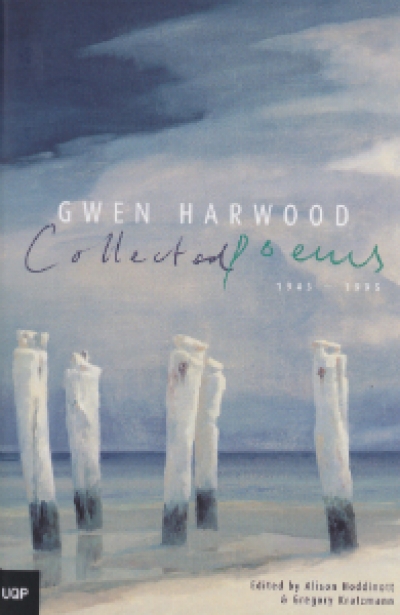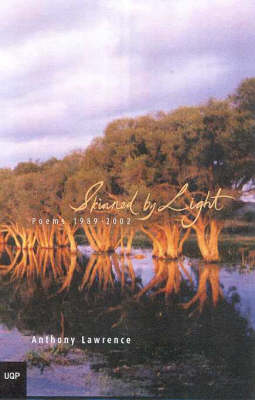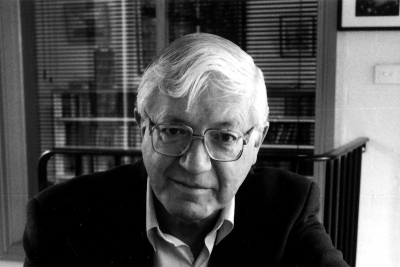Poetry
Down sandstone steps to the jetty; always
the same water, lights scattered across the tide.
Remember we say, the first time.
Our eyes locked into endless permission;
this dark gift; why can’t I let go
and be the man in your life, not the one who writes
your name down for the dedication page;
whatever the name, you know who I write for;
The Underside of the fish is just as tasty as its upper flanks. Life is also like that. And leadership is not just a matter of will, power and grandeur not just like A.D Hope’s image of such power when he writes in ‘Pyramis’:
... (read more)Kevin Brophy reviews 'City and Stranger' by Aileen Kelly, 'In Your Absence: Poems 1994–2002' by Stephen McInerney, and 'Flying Blind' by Deborah Westbury
‘Some meteorites make it to the surface simply because they’re so small that they literally float to the ground. There are thousands of these interplanetary particles in the room you’re in now, stuck to your clothes, in your hair, everywhere.’ This startling piece of information introduces Aileen Kelly’s ‘Notes from the Planet’s Edge’ in her new book, City and Stranger (Five Islands Press, $16.95 pb, 88pp), whose cover features Russell Drysdale’s iconic image of Woman in a Landscape. This bushwoman, then, is stuck with interplanetary particles or, as Kelly puts it, ‘the invisible sift of space’. Drysdale’s woman is transformed from the Australian legend in the dirt-coloured smock, wearing those oddly impractical white shoes, into a figure framed by an immense and moving universe. We look for this in poetry – the breaking of frames, the pleasure of surprise and discovery, and the contest between language and experience.
... (read more)Seven dresses. Of satin, for example, and
crêpe de Chine, tulle, shot-silk, that sort of thing.
Beading and ivory buttons. One with a rip in it.
(The tailor, in interview, remembers the incident –
a sleeve torn on the workfloor; as there were no needles
left to mend it this passes without comment.)
Made before birth for the seven balls
which would have been held in her honour
by the seven suitors, princes from provinces nearby.
Gored by the briars, providence was not on their side.
... (read more)You turn on lights inside your head
and after drawing in that mist
soon decide how you must paint
Kogarah (suppress the first ‘a’ and it scans)
Named by the locals for the creek’s tall reeds
That look like an exotic dancer’s fans
When dead, was where I lived. Born to great deeds
A stable of silver
was our sacred skite.
It’s the poor in us
my father said; we are ill
with going without
even when we gain
a stable of silver.
‘Bring the guests this way, son.’
That’s Oreka from his Hotham
rout. That’s Ima Martian from
leading all the way.
Sliding the glass, the mirror skins
of trophies warped us round.
Decanters and their goblets of young
buckled the face of a bender-down.
Trays and teapots like models
for a meal, never used,
hardly touched except by my mother
when champagne washed the plum
from her mouth and improved her swearing.
China was not a country,
it was a cup and saucer place
in there at arm’s length from the world,
her arm’s length, turning over a dish
to show her Wedgwood or Doulton tattoos.
Some years ago I wrote a poem called ‘A Table of Coincidences’, which contained the lines: ‘the day Christopher Columbus discovered America / Was the day Piero della Francesca died.’ This is a verifiable fact, unless changes in the Western calendar have altered things. Clearly, I was being sententious and reactionary: the ancient good of the world and its new doubtfulness seemed to start on the one day. A hostile reviewer pointed out that every date in the world is the anniversary of some other date, and poured scorn on my notion by suggesting that a momentous event like the Armistice in 1918 might share a date with the invention of Coca-Cola. But we still honour anniversaries, and I am only too conscious of the 365 days that have passed since 11 September 2001.
... (read more)







